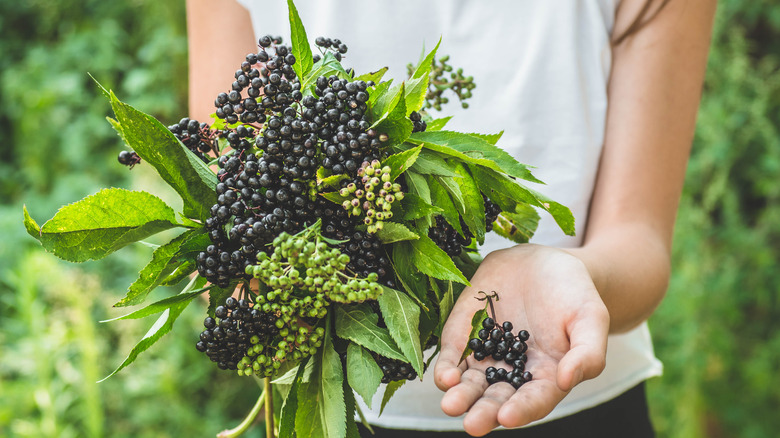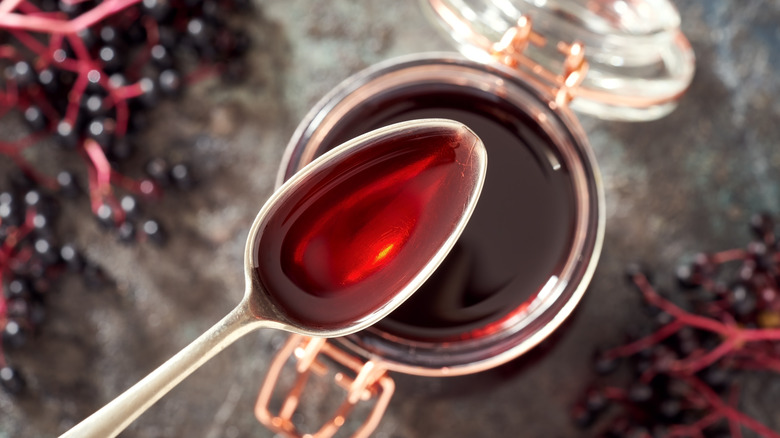Does Elderberry Help With Colds?
Elderberries are the dark-colored fruit of the Sambucus tree that contains clusters of elderflowers and bunches of tiny berries that appear blue, purple, or black (via Cleveland Clinic). Native to Europe, both the flowers and the berries of the Sambucus tree are edible; however, elderberries must be cooked before they can safely be eaten, as they can be toxic when consumed raw, causing nausea, vomiting, and diarrhea.
Fortunately, elderberries are perfectly safe to eat once they have been cooked, and they have long been used for both baking and medicinal purposes. That's because they're full of powerful antioxidants and can help boost your immune system. As a result, they've been touted for their ability to help treat illnesses like the common cold and the flu and have even been turned into cough syrups and medicinal lozenges (per the Cleveland Clinic). But do they actually work?
Elderberries may reduce cold and flu symptoms
While further research is needed, studies have shown some promising signs that elderberries may be able to help reduce and alleviate cold and flu symptoms (via Verywell Health). Although elderberries can't cure or prevent an infection, they can help reduce its longevity and minimize its effects. According to a 2019 study published in the journal Complementary Therapies in Medicine, elderberry supplements can significantly reduce upper respiratory symptoms of the cold and flu.
"Elderberry has a respiratory impact, mainly — it slows the replication of the virus, and because of that people may get less sick," Dr. Marc Goldstein, the chief of allergy and immunology at Pennsylvania Hospital, told Women's Health. Goldstein explains, "It doesn't prevent the infection from happening, but at least with common colds, people tend to get better sooner, with less severe symptoms." Another clinical study from 2016 published in Nutrients had similar findings; researchers studied the effects of elderberry extract on 312 airline passengers and found that those who consumed the extract 10 days before and five days after their flight had, on average, shorter and less serious colds.
Other studies have drawn opposing conclusions on the effectiveness of elderberry on colds and flu. A 2020 study published in the Journal of General Internal Medicine found no benefit of elderberry extract on the duration or severity of the flu on 43 of 87 participants aged 5 and over. These findings suggest further research is still needed to confirm whether or not elderberries can alleviate symptoms of the flu.


